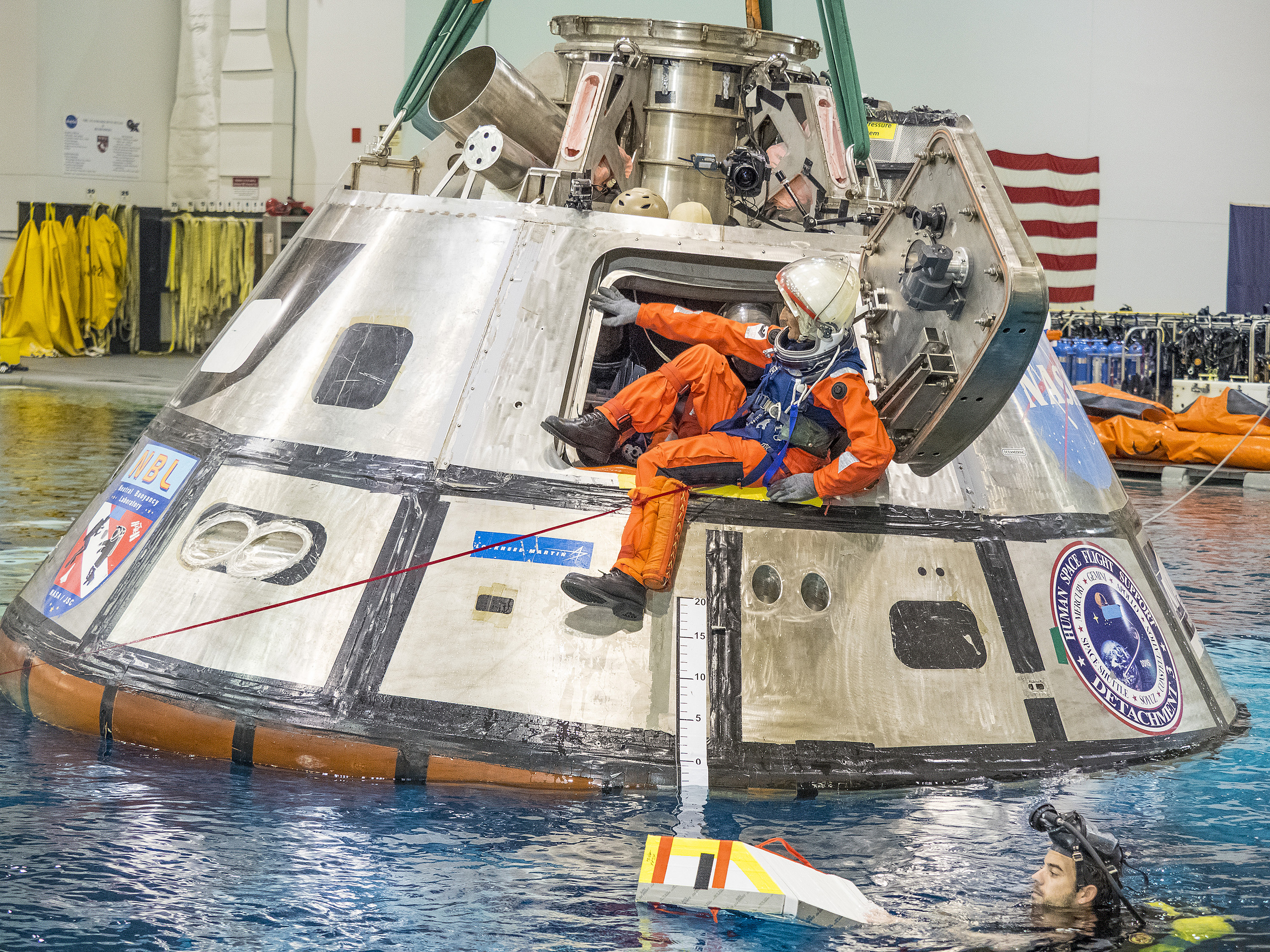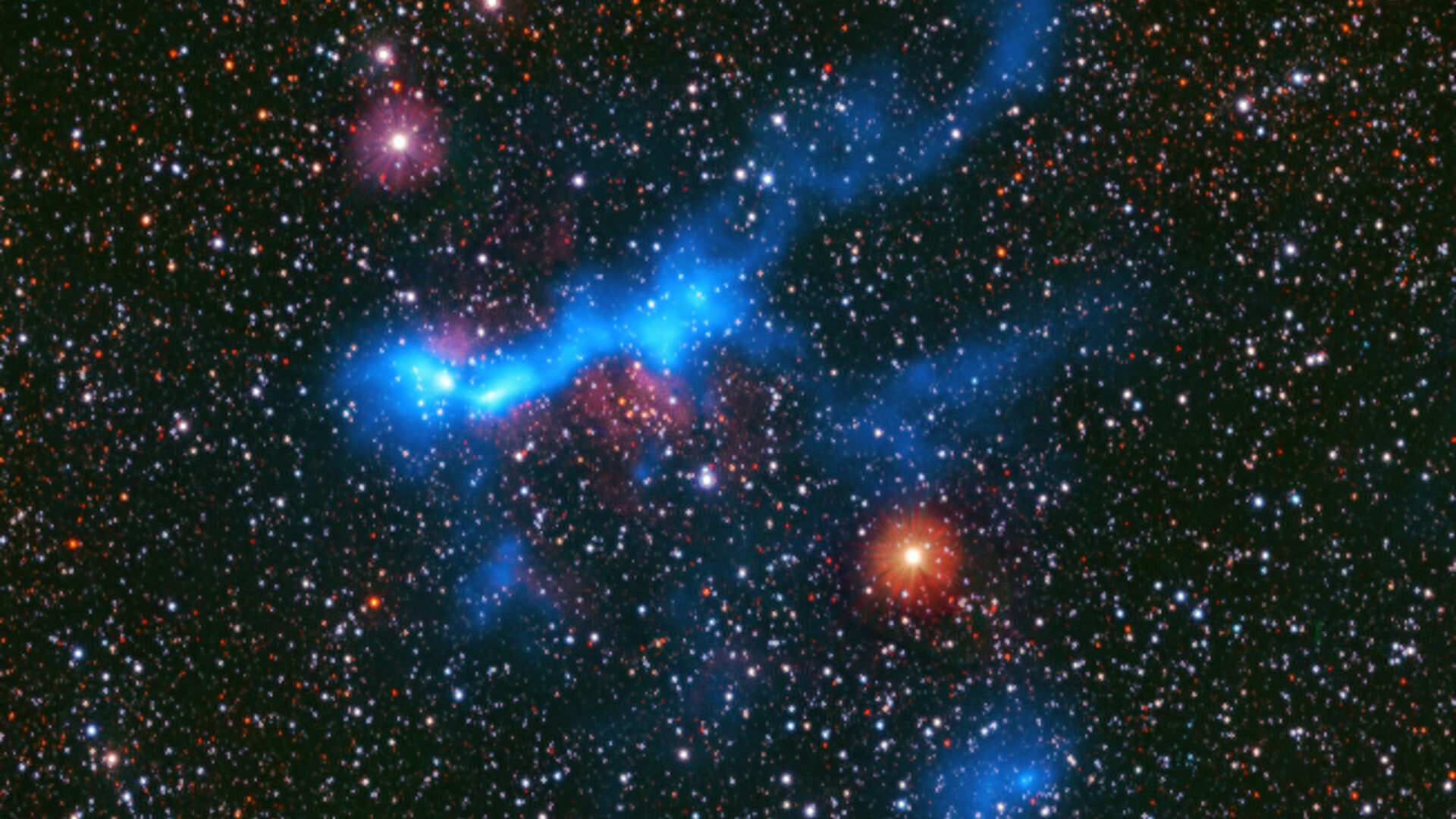
NASA Tests Astronaut Survival Systems for Orion Splashdowns

NASA and the U.S. Air Force recently tested astronaut survival systems for the first time since the space shuttles stopped flying in 2011.
Those tests were part of the agency's preparations for the first crewed flights of its Orion module, which is designed to carry astronauts out of our immediate neighborhood and toward more exotic destinations like the moon and Mars.
The scenarios focused on systems that would protect astronauts landing in open water under harsh weather conditions. (As usual for spaceflight systems, the agency wants to make sure everything works safely in the most extreme conditions that might be experienced.)
During the tests, NASA and the Air Force studied both the rafting equipment that lets crewmembers leave the capsule and the beacon systems that help rescue personnel track down the astronauts. The latter are leftover from the space shuttles' systems and haven't been checked since the vehicles stopped flying in 2011.
Crew-safety measures are at the top of everyone's mind after the Oct. 11 Soyuz launch failure that sent two astronauts plummeting back to Earth just a few minutes after their rocket blasted off. The abort system that carried those astronauts away from the troubled rocket hadn't been used in 35 years.
The Orion capsule is designed to fly on the Space Launch System, a powerful rocket that NASA has yet to complete. Crewed flights are scheduled to begin in the early 2020s, leaving the agency plenty of time to ensure all the safety systems can hold up under the harshest possible conditions.
Email Meghan Bartels at mbartels@space.com or follow her @meghanbartels. Follow us @Spacedotcom and Facebook. Original article on Space.com.
Breaking space news, the latest updates on rocket launches, skywatching events and more!

Meghan is a senior writer at Space.com and has more than five years' experience as a science journalist based in New York City. She joined Space.com in July 2018, with previous writing published in outlets including Newsweek and Audubon. Meghan earned an MA in science journalism from New York University and a BA in classics from Georgetown University, and in her free time she enjoys reading and visiting museums. Follow her on Twitter at @meghanbartels.
